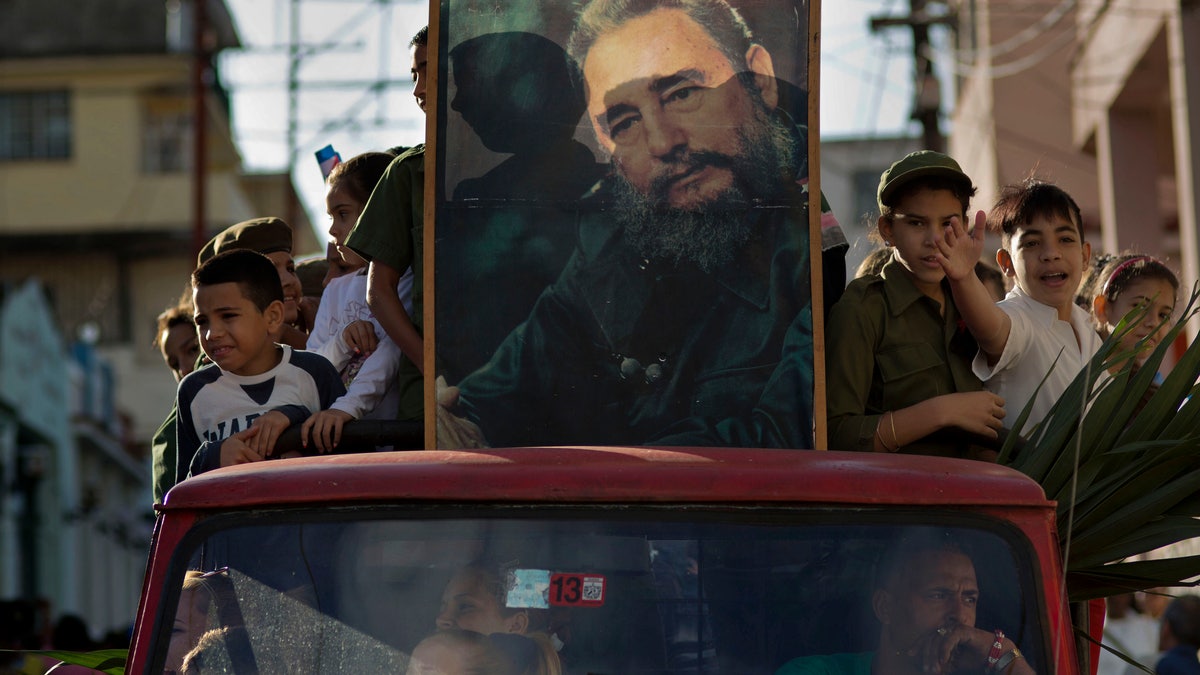
Children ride in the bed of a truck with a framed image of Fidel Castro, in Regla, Cuba, Thursday, Jan. 8, 2015.
Today marks 365 days since the former Cuban leader Fidel Castro, 88, was last seen in public — he was a gaunt presence who delicately shuffled his way through an art gallery in Havana.
His absence has been especially conspicuous because so far has he made no comment about the announcement that the U.S. will restore diplomatic relations after more than 50 years of hostility.
Little information about Castro is officially disclosed, including where he lives. But his silence has once again started rumors about his fragile health.
Late on Thursday, various media outlets reported that Castro had died and that Cuban officials were to hold a press conference on his death after a report was published by the Italian newspaper Corriere della Sera about Castro's demise.
Cuban officials vehemently denied both Castro's death and the press conference and the Italian newspaper eventually retracted its story, but not before social media sites like Twitter exploded with rumors of the elder Castro's death.
"For a couple of hours there was talk of a press conference to convene in the afternoon to the national and foreign press, but the fact was then denied," Corriere della Sera reported. There is therefore currently no official confirmation from the Cuban government."
This hiatus from public view is the longest since 2006, when he ceded power to his brother Raúl after falling ill.
Before the art gallery appearance in January 2014, his longest period away from public view had been nine months. Almost a year prior to that, he waited six days before commenting on the 2013 death of Hugo Chávez, the Venezuelan president who was a close friend and ally.
The last head of state who met with Fidel Castro was allegedly his close ally President Nicolás Maduro, who said he met with him in August 2014 and showed photos of their encounter. He told the press he saw Castro "with an impressive lucidity, an impressive train of thought and exceptional wisdom."
Fidel Castro’s last written commentary, about Cuba’s efforts to fight Ebola, was published on October 21.
On Dec. 17, President Barack Obama ended five decades of official U.S. hostility toward communist-governed Cuba by announcing that, along with an exchange of men held on espionage charges, he would move toward full diplomatic ties, drop regime change as a U.S. goal and use his executive authority to punch holes in the longstanding trade embargo.
Raúl Castro welcomed the announcement but said detente would not lead Cuba to change its single-party political system or centrally planned economy.
The Associated Press contributed to this report.












































